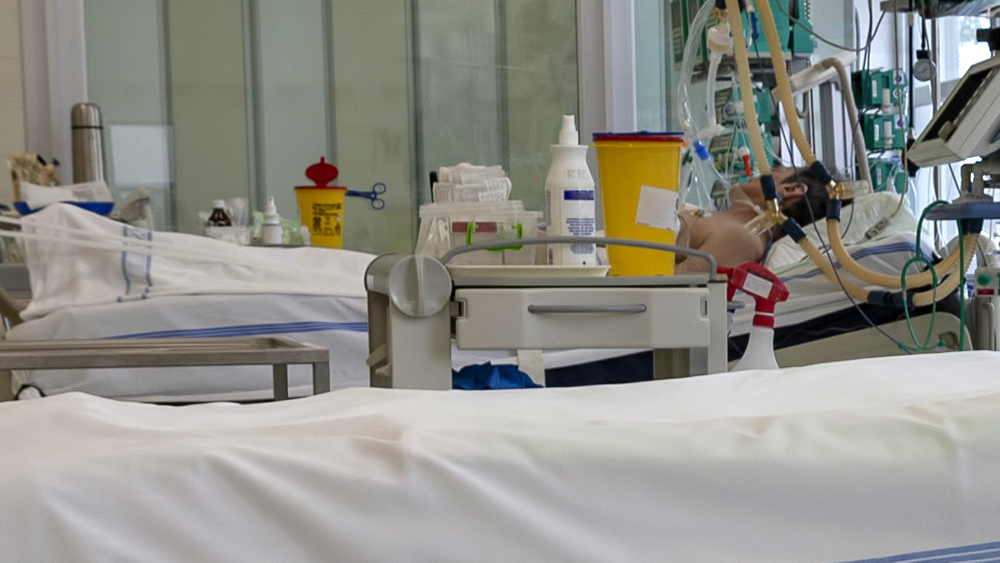Americans wildly misinformed about risk of hospitalization from coronavirus, survey shows
03/26/2021 / By Arsenio Toledo

A recent survey found that as many as one in every three Americans has overestimated the probability that a person who has contracted the Wuhan coronavirus (COVID-19) will require hospitalization.
The study was conducted by researchers from the Franklin Templeton Investments and Gallup as part of the “Economics of Recovery Survey.” It involved asking around 35,000 American adults questions to gauge their understanding of “COVID-related facts and concomitant behaviors.”
In Dec. 2020, the volunteers were asked this question: “What percentage of people who have been infected by the coronavirus needed to be hospitalized?”
The authors noted that the correct answer is “not precisely known,” but the best available estimates place the figure between one to five percent of coronavirus cases. What startled the authors was the radically different perception people had.
Only 18 percent gave the correct answer of between one to five percent, or less than one in every five U.S. adults. Around 35 percent of adults thought at least half of all coronavirus cases need hospitalization.
“If that were true, the millions of resulting patients would have overwhelmed hospitals throughout the pandemic,” wrote the authors. “The U.S. public is also deeply misinformed about the severity of the virus for the average infected person.”
It should be noted that the perceptions were radically different when taking into account a person’s political leanings. Democrats were more likely than Republicans to overestimate the harm of COVID-19.

Forty-one percent of Democrats and 27.9 percent of Republicans believed that half or more of coronavirus cases required hospitalizations. For Democrats, 47.3 percent believed between six to 49 percent of cases required hospitalizations, compared to just 42.7 percent of Republicans.
Nearly 26 percent of Republicans gauged the severity of the virus correctly, compared to just 9.8 percent of Democrats. (Related: Multiple studies show COVID-19 mortality rate has dropped significantly since beginning of pandemic.)
Overestimating risk of coronavirus has real-world consequences
Jon Miltimore, writing for the pro-free market think tank the Foundation for Economic Education, believes that at least part of the reason why Americans are misinformed about the severity of the coronavirus is the media.
“Studies have shown that U.S. media, in particular, created a climate of fear by publishing a deluge of negative news in 2020,” wrote Miltimore, who cited a study from the National Bureau of Economic Research, a private nonprofit research organization.
The study found that around 91 percent of stories the mainstream media outlets ran were negative in tone, even when the coronavirus was clearly in decline in the country and positive results were being achieved.
“The negativity of the U.S. major media is notable even in areas with positive scientific developments including school re-openings,” wrote the researchers. “Stories of increasing COVID-19 cases outnumber stories of decreasing cases by a factor of 5.5 even during periods when new cases are declining.”
Regardless of where these misconceptions about the coronavirus pandemic came from, the researchers from Franklin Templeton-Gallup were concerned that this skewed sense of reality could translate to “important real-world implications.”
“Those who overestimate risks to young people or hold an exaggerated sense of risk upon infection are more likely to favor closing schools, restaurants and other businesses,” wrote the Franklin Templeton-Gallup study authors.
Learn more about how people perceive the coronavirus pandemic by reading the latest articles at Pandemic.news.
Sources include:
Tagged Under: coronavirus, coronavirus hospitalization, coronavirus perception, coronavirus risk, covid-19, fake news, hospitalization rates, infections, Journalism, lies, mainstream media, misinformation, outbreak, pandemic




















